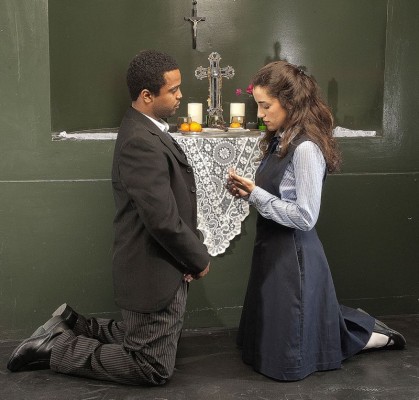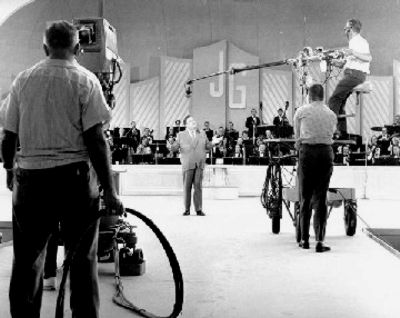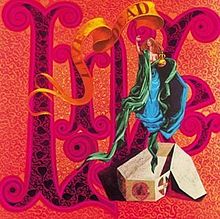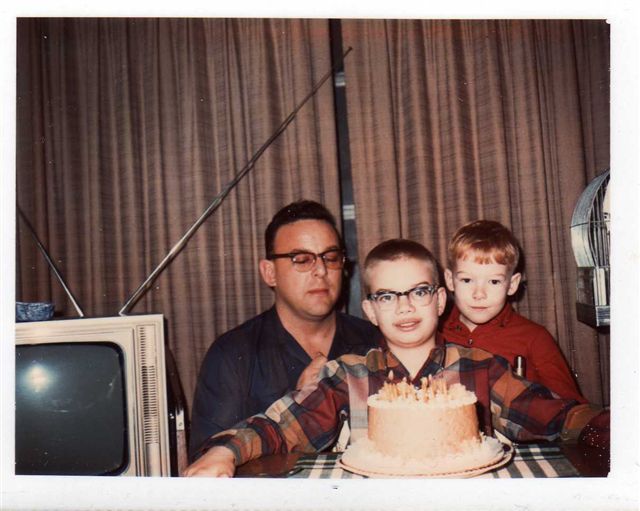I flew from Orlando (where it’s warm) to New York (where it isn’t) last night. This morning I’ll be giving a speech at TEDxBroadway 2013 which I hope will be of interest to all those present. It’s called “The One Good Reason to Take a Chance on Broadway.”
As soon as I finish talking, I’ll run to the nearest corner, jump in a cab, head for LaGuardia Airport, fly back to Orlando, collect a rental car and Mrs. T–presumably in that order–and head for West Palm Beach, where I’ll be seeing a revival of A Raisin in the Sun, writing two Wall Street Journal columns, correcting the proofs of the Commentary essay about John Gielgud that I finished writing yesterday morning, and finishing Duke: A Life of Duke Ellington.
Or so, at any rate, I hope.
* * *
“Something for Nothing,” a 1940 short in which Rube Goldberg explains the principle of perpetual motion:
Archives for January 2013
TT: Just because
Charles Boyer appears as the mystery guest on What’s My Line? in 1957:
(This is the latest in a series of arts-related videos that appear in this space each Monday and Wednesday.)
TT: Almanac
“The great composers belong among the undisputed geniuses. More questionable is their perpetuity. It depends in the first place on the ever renewed efforts of posterity, to wit performances, which must compete with performance of all subsequent and (each time) contemporary works, while other arts can display their products once and forever; and depends in the second place on the survival of our tone system and rhythm, which is not everlasting. Mozart and Beethoven may become for a future mankind as incomprehensible as might now be to us the Greek music so highly praised by its contemporaries. They will remain great on credit, on the enthusiastic say-so of our times, like, say, the painters of antiquity, whose works have been lost.”
Jacob Burckhardt, Reflections on Music (courtesy of John Simon)
TT: Cutting to the chase
In today’s Wall Street Journal drama column I review two Latino-themed productions, GableStage’s abridged version of Hamlet and the New York premiere of Quiara Alegría Hudes’ Water by the Spoonful. Here’s an excerpt.
* * *
How do you make Shakespeare’s plays more easily accessible to potentially interested people who feel intimidated by their high seriousness and high-flown rhetoric? Turning them into big-budget movies with big-name casts doesn’t hurt, but it’s been a decade and a half since Baz Luhrmann’s “Romeo + Juliet” rang the box-office gong, and it’s far from clear that such films actually persuade many of those who view them to try seeing a Shakespeare play onstage. My guess is that the only way to make the sale is to lure the customer into a theater for a live performance. So what’s the best way to bring that about?
 GableStage, a lively and accomplished company located in Coral Gables, a suburb of Miami, is putting on a “Hamlet” specifically designed to do the job. Originally created by Tarell Alvin McCraney for London’s Royal Shakespeare Company, it’s a multi-racial modern-dress version that runs for 90 intermission-free minutes, nearly three hours shorter than an uncut production. The unhappy Dane is played by a Latino actor, Edgar Miguel Sanchez, who carries a knife in a shoulder holster and is in love with a jumper-clad Ophelia (Mimi Davila). Fear not, though: Mr. McCraney isn’t trying to turn the most admired of all classical verse dramas into “2B or Nt 2B.” Except for a sprinkling of Spanish-language lines, this “Hamlet” is devoid of high-concept gimmickry. What’s more, it’s acted on an Elizabethan-style stage by a cast of eight performers–and it moves fast.
GableStage, a lively and accomplished company located in Coral Gables, a suburb of Miami, is putting on a “Hamlet” specifically designed to do the job. Originally created by Tarell Alvin McCraney for London’s Royal Shakespeare Company, it’s a multi-racial modern-dress version that runs for 90 intermission-free minutes, nearly three hours shorter than an uncut production. The unhappy Dane is played by a Latino actor, Edgar Miguel Sanchez, who carries a knife in a shoulder holster and is in love with a jumper-clad Ophelia (Mimi Davila). Fear not, though: Mr. McCraney isn’t trying to turn the most admired of all classical verse dramas into “2B or Nt 2B.” Except for a sprinkling of Spanish-language lines, this “Hamlet” is devoid of high-concept gimmickry. What’s more, it’s acted on an Elizabethan-style stage by a cast of eight performers–and it moves fast.
It stands to reason, of course, that a 90-minute “Hamlet” can’t be poetic other than in passing. The members of Mr. McCraney’s cast reportedly refer to his production as “Hamlet, the Action Movie,” and that’s pretty much what it is, except that the dialogue is a lot better and nothing blows up. The staging is satisfyingly spare and direct. The occasional touches of slapstick don’t work very well, but otherwise it’s played straight down the center, ending with a sensational fight scene….
The first ten minutes of “Water by the Spoonful,” Quiara Alegría Hudes’ Pulitzer-winning play about recovering drug addicts who hunger for a sense of community, contains phrases like “dial the digits” and “tappin’ some extra on the side” and references to Whole Foods, quinoa, recycling, and texting, at the end of which we find ourselves in a chat room for crackheads. Rarely will you see a serious play–and this one is deadly serious–that tries so hard to sound up to the minute. Once you get used to the constant rattle of contemporaneity, though, you’ll likely find much of “Water by the Spoonful” to be genuinely involving. Be forewarned, though, that it’s a little bit sentimental and more than a little bit earnest, at times to the point of outright humorlessness….
* * *
Read the whole thing here.
TT: Almanac
“A poem is like a painting.”
Horace, Ars Poetica
TT: So you want to see a show?
Here’s my list of recommended Broadway, off-Broadway, and out-of-town shows, updated weekly. In all cases, I gave these shows favorable reviews (if sometimes qualifiedly so) in The Wall Street Journal when they opened. For more information, click on the title.
BROADWAY:
• Annie (musical, G, reviewed here)
• The Mystery of Edwin Drood (musical, PG-13, closes Mar. 10, reviewed here)
• Once (musical, G/PG-13, nearly all performances sold out last week, reviewed here)
• The Other Place (drama, PG-13, closes Mar. 3, reviewed here)
• Picnic (drama, PG-13, closes Feb. 24, reviewed here)
• Who’s Afraid of Virginia Woolf? (drama, PG-13/R, closes Mar. 3, reviewed here)
OFF BROADWAY:
• Avenue Q (musical, R, adult subject matter and one show-stopping scene of puppet-on-puppet sex, reviewed here)
• The Fantasticks (musical, G, suitable for children capable of enjoying a love story, reviewed here)
CLOSING NEXT WEEK IN SARASOTA, FLA.:
• The Best of Enemies (drama, PG-13, closes Feb. 2, reviewed here)
CLOSING FRIDAY IN BOSTON:
• Our Town (drama, G, remounting of off-Broadway production, original production reviewed here)
CLOSING SATURDAY IN FORT MYERS, FLA.:
• The Little Foxes (drama, PG-13, reviewed here)
CLOSING SATURDAY ON BROADWAY:
• Evita (musical, PG-13, many performances sold out last week, reviewed here)
TT: Almanac
“Dictionaries are like watches; the worst is better than none, and the best cannot be expected to go quite true.”
Samuel Johnson, letter to Francesco Sastres, Aug. 21, 1784
TT: Blossoms in the breeze
 One of the nice things about being married to a woman who’s exactly your age is that you rarely have to explain things to one another. As Mrs. T and I drove into Miami Beach the other day, she looked over at me and said, “The sun and fun capital of the world!” We dissolved at once in shared laughter, each knowing what the other was thinking. That was the tagline used by Johnny Olson every Saturday night to introduce Jackie Gleason and His American Scene Magazine, my father’s favorite TV program, which was taped in Miami Beach. Mrs. T and I both watched it faithfully when we were small, and recall the show with a fondness that has little to do with its intrinsic merit, such as it was.
One of the nice things about being married to a woman who’s exactly your age is that you rarely have to explain things to one another. As Mrs. T and I drove into Miami Beach the other day, she looked over at me and said, “The sun and fun capital of the world!” We dissolved at once in shared laughter, each knowing what the other was thinking. That was the tagline used by Johnny Olson every Saturday night to introduce Jackie Gleason and His American Scene Magazine, my father’s favorite TV program, which was taped in Miami Beach. Mrs. T and I both watched it faithfully when we were small, and recall the show with a fondness that has little to do with its intrinsic merit, such as it was.
Never having gotten myself too firmly entangled in the kind of red-sports-car relationship that Donald Fagen describes sardonically (but sympathetically) in his new album, I can’t imagine what it would feel like to be romantically involved with a person who didn’t know what you were talking about most of the time. Mrs. T, who is four days my junior, almost always knows what I’m talking about. She saw the same TV shows, heard the same records on the radio, and sang along with the same commercials. Like me, she remembers with perfect clarity how it felt to be young in the Sixties and slightly less so in the Seventies.
To be coeval with your spouse is an insufficiently appreciated comfort as you steer your uneasy way through middle age, though it’s no less important–for a journalist, anyway–to keep one eye firmly fixed on the windshield. I like it when my younger friends fill me in on current events in the great world of pop culture, and from time to time I cultivate a fresh enthusiasm of my own (most recently for Janelle Monáe, to whom Our Girl in Chicago introduced me last year).
At the same time, though, I cringe at the idea of becoming the kind of ever-so-with-it senior citizen who engages in the blush-making practice of what one of Kingsley Amis’ characters refers to as “arse-creeping youth.” When I take an interest in something new, it’s because I like it, not because I want to be seen liking it, much less because I want to stun my younger friends with my hipness, which never works anyway. I’m not hip, nor have I ever been (though I do take pride in being one of the few jazz writers who can actually play the blues). I’m a fifty-six-year-old man who likes what he likes and does his best never to pretend otherwise.
 This cuts both ways: I don’t like the pop culture of my youth merely because it was the pop culture of my youth. You couldn’t pay me to sit through an episode of The Brady Bunch or listen to Live/Dead straight through. Life’s too short to waste any part of it rehashing adolescent enthusiasms that didn’t pan out.
This cuts both ways: I don’t like the pop culture of my youth merely because it was the pop culture of my youth. You couldn’t pay me to sit through an episode of The Brady Bunch or listen to Live/Dead straight through. Life’s too short to waste any part of it rehashing adolescent enthusiasms that didn’t pan out.
That said, I wouldn’t dream of denying that I miss the world of my youth, or that I think about it fairly often, perhaps more often than I should. Sometimes I even miss being young–though not usually–and no day passes when I fail to miss my beloved parents. But would I turn the clock back? Not a chance. Television at its best is infinitely better now than it was then, and most of the rock music to which I listened avidly in 1973 bores me stiff now. I vastly prefer my MacBook to the manual typewriter on which I painstakingly taught myself how to be a professional writer, just as I prefer my iPod (yes, I still have one) to the monstrous console radio-phonograph that I inherited from my father’s mother when I was a teenager.
 What I really miss, I suppose, is the sheer simplicity of childhood, that precious time when other people make the decisions and all you have to do is be. Yet I don’t miss it enough to want to live any part of it over again. Colette, who was exceedingly wise about such things, said something in The Last of Chéri that I take very much to heart: “I love my past. I love my present. I’m not ashamed of what I’ve had, and I’m not sad because I have it no longer.” I loved my childhood, but I love my life with Mrs. T even more–and I also love it that she knows who Crazy Guggenheim was and can sing the theme song from The Beverly Hillbillies from memory without getting a word wrong.
What I really miss, I suppose, is the sheer simplicity of childhood, that precious time when other people make the decisions and all you have to do is be. Yet I don’t miss it enough to want to live any part of it over again. Colette, who was exceedingly wise about such things, said something in The Last of Chéri that I take very much to heart: “I love my past. I love my present. I’m not ashamed of what I’ve had, and I’m not sad because I have it no longer.” I loved my childhood, but I love my life with Mrs. T even more–and I also love it that she knows who Crazy Guggenheim was and can sing the theme song from The Beverly Hillbillies from memory without getting a word wrong.
